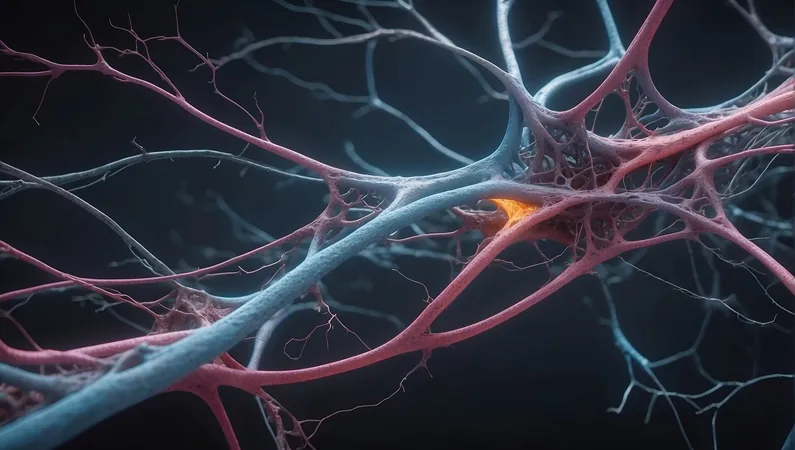
Unlocking Memory: Key Brain Protein Could Revolutionize Treatment for Memory Loss and Neurodegenerative Diseases
2025-07-11
Author: Daniel
A Game-Changer in Brain Science
In a groundbreaking study, scientists have unveiled how a crucial protein plays a pivotal role in preserving the critical connections between brain cells essential for learning and memory. This revelation, featured in the prestigious journal *Science Advances*, could pave the way for innovative treatments for traumatic brain injuries and debilitating diseases like Parkinson's and Alzheimer's.
The Power of Cypin
Leading this insightful research is Bonnie Firestein, a Distinguished Professor at Rutgers University-New Brunswick. Her team's exploration of the protein cypin has unveiled its unexpected function. Cypin is instrumental in affixing specific tags to proteins at synapses—the tiny gaps where neurons communicate. This tagging is vital, ensuring proteins are precisely where they need to be for optimal synaptic function.
A Potential Breakthrough for Brain Health
According to Firestein, these findings hold immense promise for revolutionizing the treatment of brain disorders. "By focusing on the protein cypin, we could significantly enhance the connections between brain cells, potentially boosting memory and cognitive abilities," she stated. This could lead to groundbreaking therapies for various neurodegenerative conditions and brain injuries.
Decades of Research Pay Off
Firestein’s extensive two-decade study of cypin has revealed critical insights into its role in maintaining brain health. One major discovery is that cypin facilitates the tagging process of proteins in neuronal synapses—a key step for proper signaling and communication among neurons.
Cypin’s Interaction with the Proteasome
Another vital finding is cypin’s interaction with the proteasome, a protein complex responsible for breaking down proteins. When cypin binds to this complex, it slows down protein degradation, allowing for a beneficial buildup that enhances various cellular functions necessary for neuron communication.
A Boost for Memory and Learning
Furthermore, increased levels of cypin correlate with heightened amounts of essential proteins at synapses, facilitating better communication between neurons. This process is crucial for learning and memory, showcasing cypin’s impressive influence.
The Link to Synaptic Plasticity
The research underscores cypin's vital role in synaptic plasticity—the brain's ability to adapt and change over time. This capability is particularly important for countering the synaptic dysfunction linked to conditions such as Alzheimer's and Parkinson's.
Translating Research into Real-World Solutions
Although categorized as fundamental research, Firestein emphasizes the potential clinical applications of these findings, stating she is already engaged in translating this groundbreaking work into practical treatments to enhance human health.
Collaboration Across Institutions
The study also saw contributions from talented researchers at Rutgers and Michigan State University, highlighting the collaborative spirit driving these crucial findings.
A Ray of Hope for the Future
As scientists continue to unravel the complexities of cypin, its potential to transform the landscape of neurodegenerative disease treatment becomes increasingly promising. This could mark a new dawn for individuals suffering from age-related cognitive decline and brain injuries.





 Brasil (PT)
Brasil (PT)
 Canada (EN)
Canada (EN)
 Chile (ES)
Chile (ES)
 Česko (CS)
Česko (CS)
 대한민국 (KO)
대한민국 (KO)
 España (ES)
España (ES)
 France (FR)
France (FR)
 Hong Kong (EN)
Hong Kong (EN)
 Italia (IT)
Italia (IT)
 日本 (JA)
日本 (JA)
 Magyarország (HU)
Magyarország (HU)
 Norge (NO)
Norge (NO)
 Polska (PL)
Polska (PL)
 Schweiz (DE)
Schweiz (DE)
 Singapore (EN)
Singapore (EN)
 Sverige (SV)
Sverige (SV)
 Suomi (FI)
Suomi (FI)
 Türkiye (TR)
Türkiye (TR)
 الإمارات العربية المتحدة (AR)
الإمارات العربية المتحدة (AR)